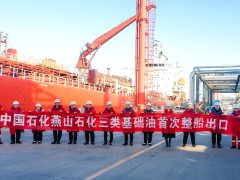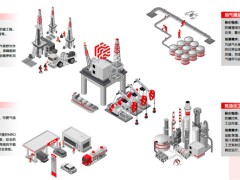据能源经济6月28日消息称,在英国商务大臣Kwasi Kwarteng访问奥斯陆后,挪威石油和天然气公司Equinor周二表示,已将其在英国的氢气生产目标提高到1.8 吉瓦 (GW)。
Equinor 表示,计划新增 1.2 GW 低碳制氢产能,主要供应Keadby hydrogen,这是Equinor与英国公用事业公司SSE联合开发的世界上第一个大型100%氢气发电厂。
它补充说,在等待英国政府的支持下,该工厂可能会在本十年结束前开始运营。
Equinor首席执行官Anders Opedal表示,该公司的项目将帮助英国实现其气候目标。他与Kwarteng和挪威石油和能源大臣Tina Bru参加了会议。
Opedal 在一份声明中说:“我们在英国的低碳项目建立在我们自己的工业经验之上,并将在英国工业中心地带的领先地位中发挥重要作用。”
英国的目标是到2050年实现净零碳排放,到2030年实现5 吉瓦的清洁氢产能,并正在为一些脱碳项目提供资金支持。
Equinor已经计划在英格兰东北部建立一个0.6 GW的工厂,从天然气中生产所谓的“蓝色”氢,同时捕获相关的二氧化碳(CO2)排放。
该公司还参与了一个在该地区发展二氧化碳运输和储存基础设施的项目。
通过使用可再生电力从水中生产氢或结合碳捕获和储存 (CCS) 的方式从天然气中生产氢气的方式,被认为对钢铁和化学品等行业的脱碳至关重要。
如今,大部分氢气是由天然气生产的,而相关的二氧化碳则被排放到大气中。
朱佳妮 摘译自 能源经济
原文如下:
Norway's Equinor aims to triple UK hydrogen production capacity
Norwegian oil and gas firm Equinor said on Tuesday it had raised its hydrogen production goal in the United Kingdom to 1.8 gigawatts (GW), following a visit of Britain's Business Secretary Kwasi Kwarteng to Oslo.
Equinor said it planned to add 1.2 GW of low-carbon hydrogen production capacity mainly to supply Keadby Hydrogen, the world's first major 100% hydrogen-fired power plant it is developing jointly with British utility SSE.
Pending support from the British government, the plant could start operations before the end of the decade, it added.
Equinor's Chief Executive Anders Opedal, who took part in a meeting with Kwarteng and Norway's Oil and Energy Minister Tina Bru, said its projects would help the UK achieve its climate goals.
"Our low-carbon projects in the UK build on our own industrial experience and will play a major role in setting the UK's industrial heartlands in a leading position," Opedal said in a statement.
Britain has a target to reach net-zero carbon emissions by 2050 and 5 GW of clean hydrogen capacity by 2030, and is providing financial support to a number of decarbonisation projects.
Equinor is already planning to build a 0.6 GW capacity plant in north-eastern England to produce so-called "blue" hydrogen from natural gas, while capturing associated carbon dioxide (CO2) emissions.
It is also involved in a project to develop CO2 transport and storage infrastructure in the region.
Clean hydrogen, produced from water by using renewable electricity or from natural gas in combination with carbon capture and storage (CCS), is seen vital to decarbonise industries such as steel and chemicals.
Today most hydrogen is produced from natural gas, while associated CO2 emissions are released into the atmosphere.
免责声明:本网转载自其它媒体的文章,目的在于弘扬石化精神,传递更多石化信息,并不代表本网赞同其观点和对其真实性负责,在此我们谨向原作者和原媒体致以敬意。如果您认为本站文章侵犯了您的版权,请与我们联系,我们将第一时间删除。







